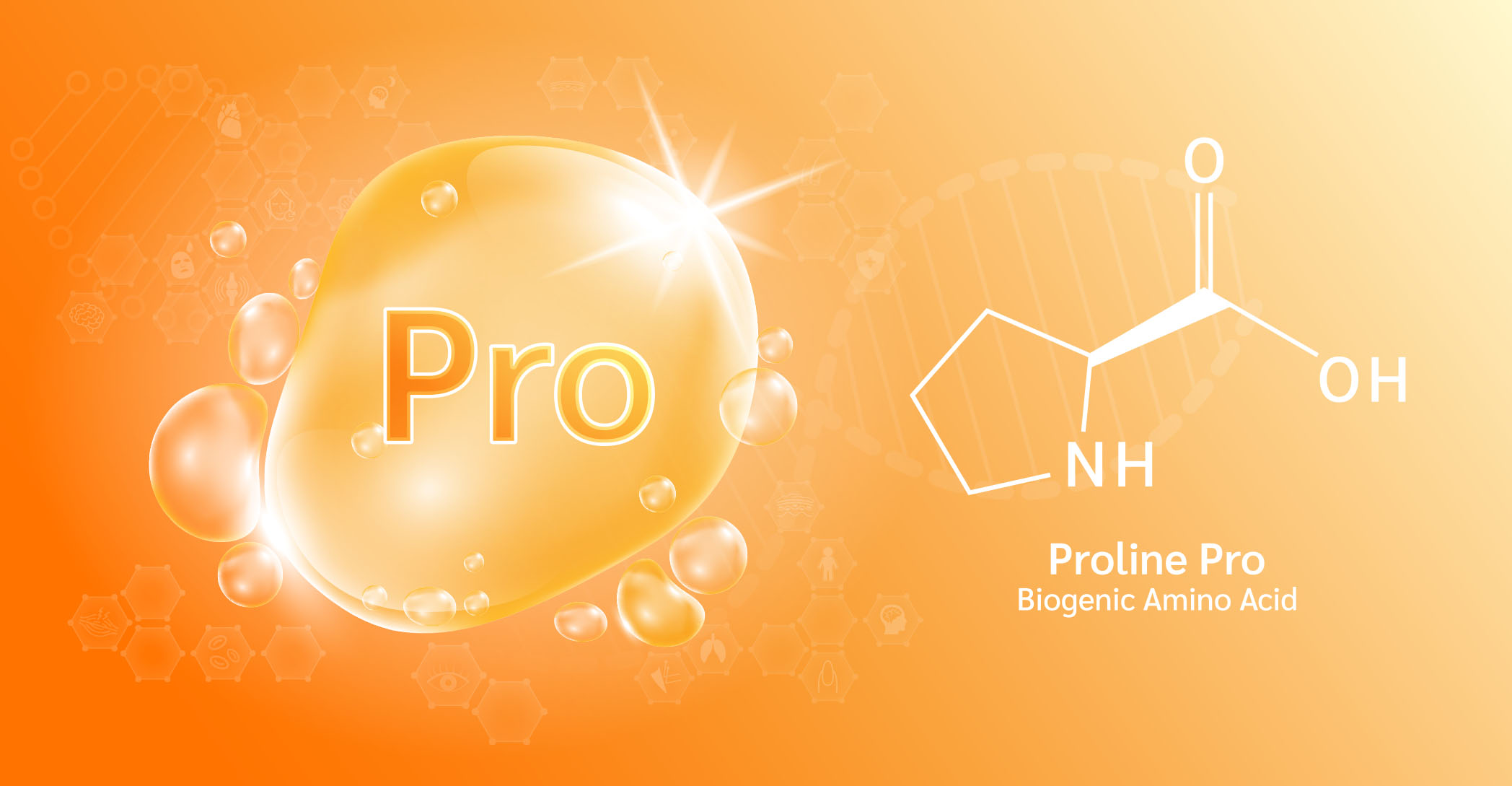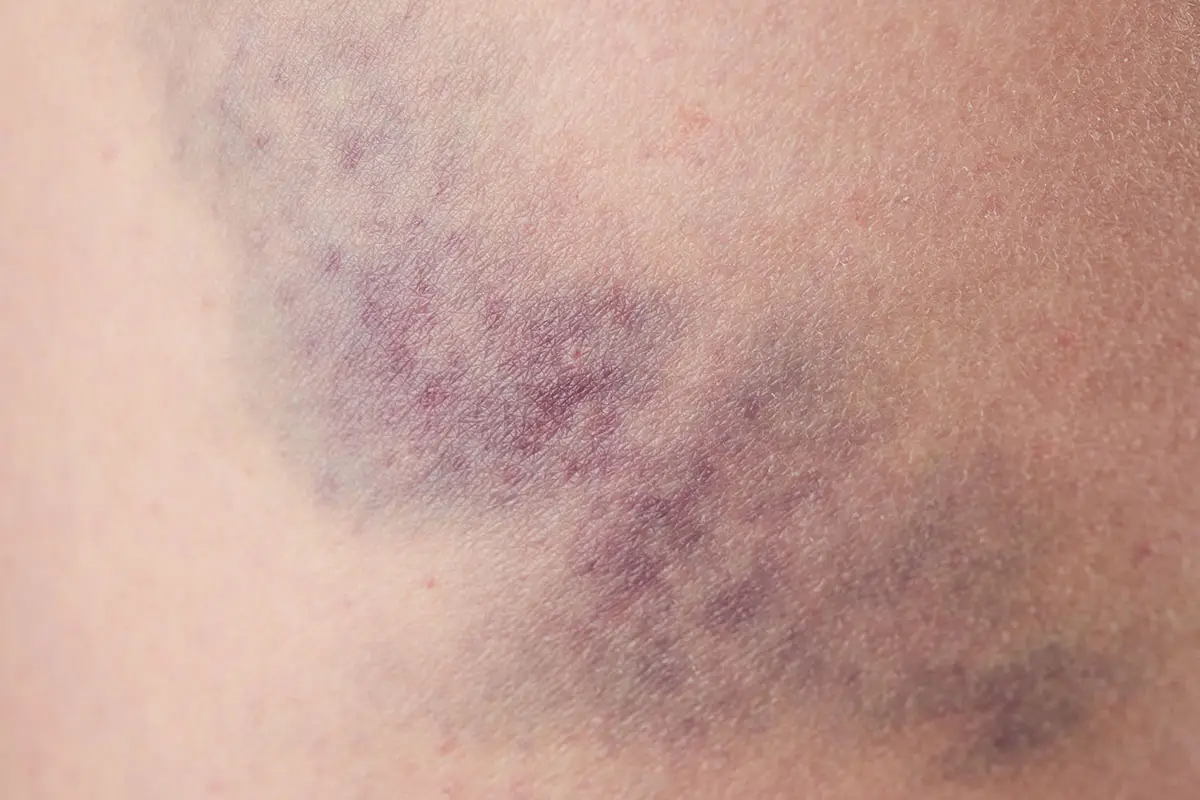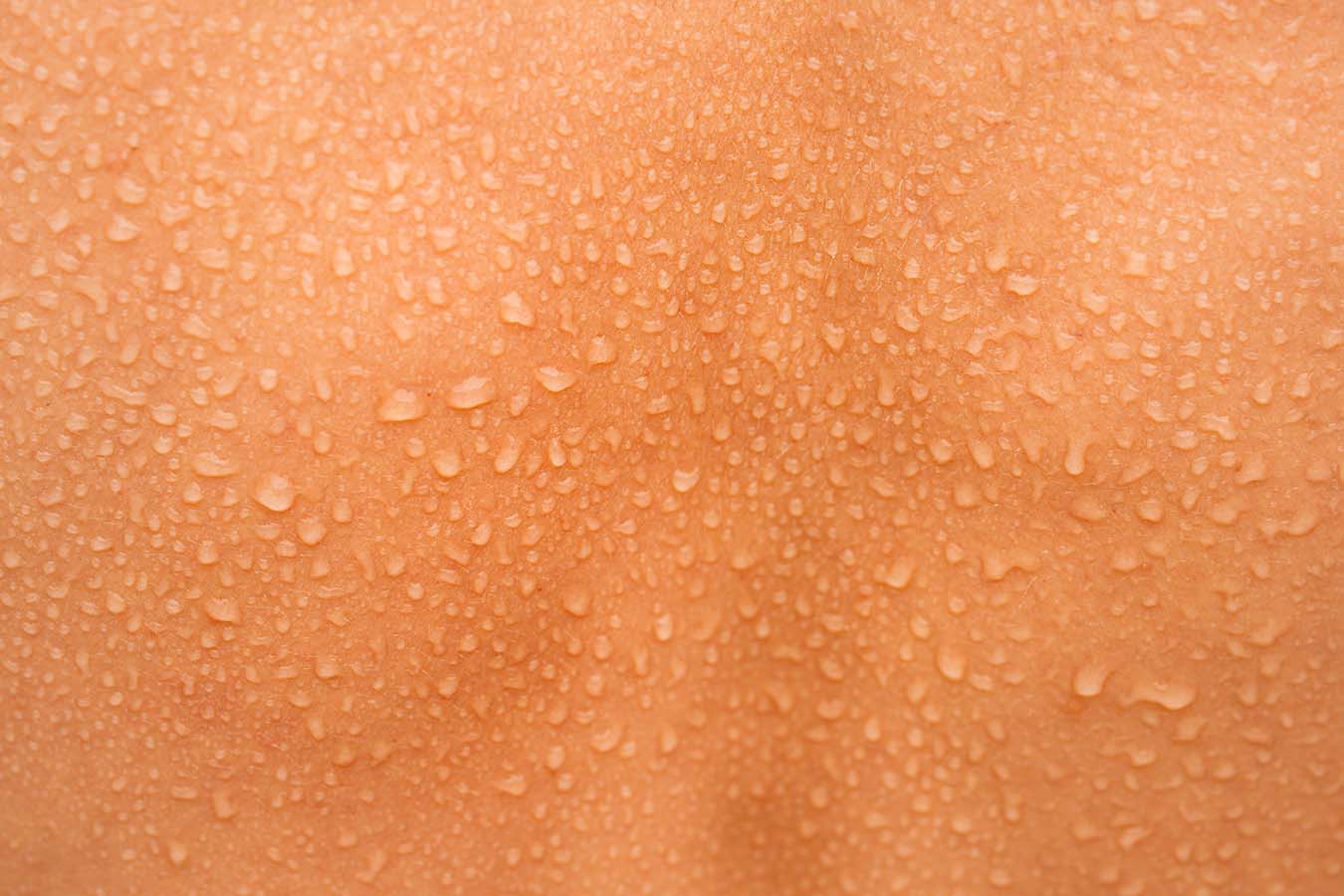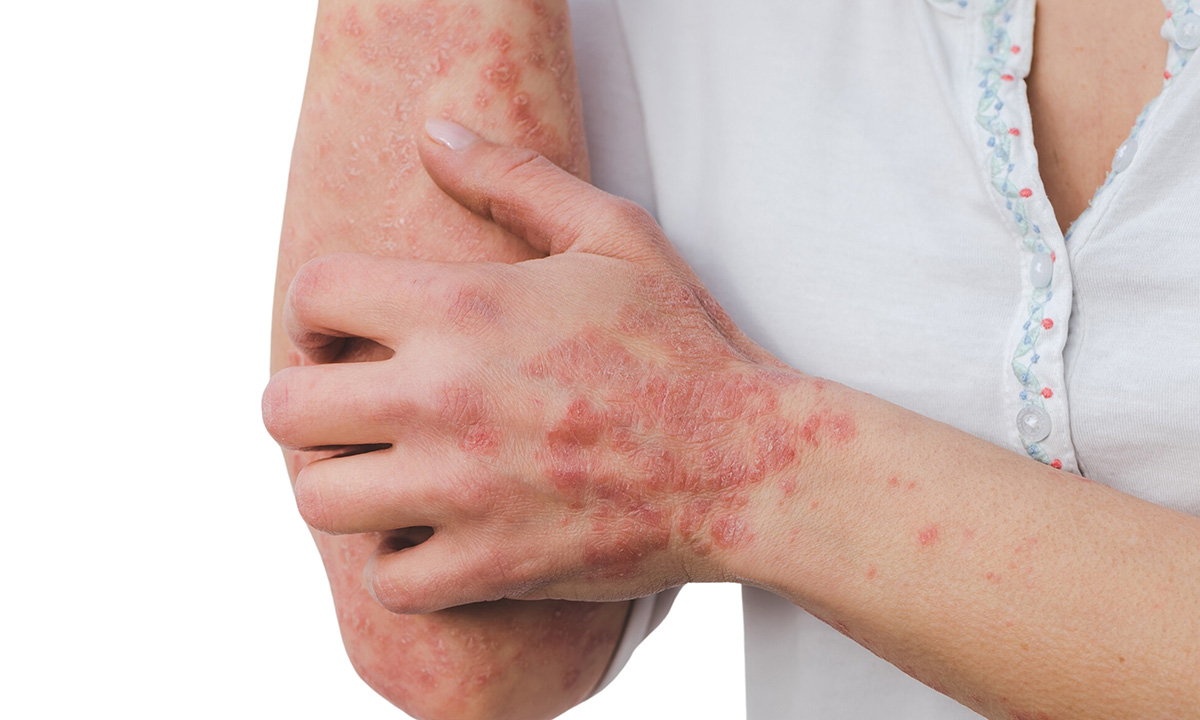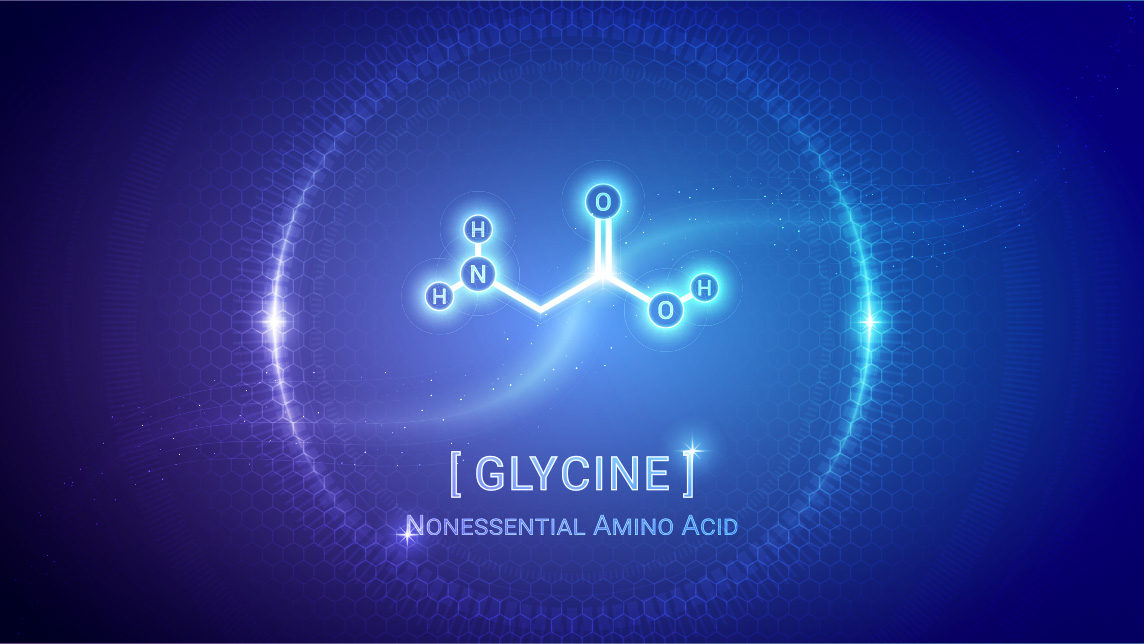
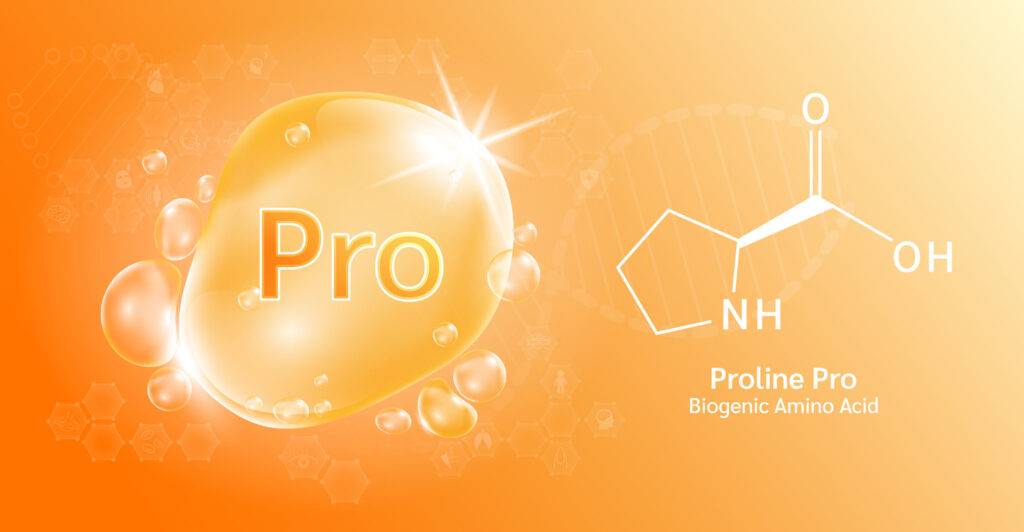
L-Proline is a non-essential amino acid integral to the synthesis and stability of collagen, the primary structural protein in the skin’s extracellular matrix. Collagen imparts tensile strength and elasticity to the dermis, and its degradation is a hallmark of skin aging.
Proline and its hydroxylated derivative, hydroxyproline, constitute approximately 23% of collagen’s amino acid composition . Proline residues are crucial for the formation of collagen’s triple-helix structure, which is essential for its mechanical strength. The hydroxylation of proline to hydroxyproline, a process dependent on vitamin C, further stabilizes this triple-helix configuration.PubMed+1Women’s Concepts+1
Beyond structural support, proline influences skin repair mechanisms. Studies have demonstrated that proline-derived dipeptides, such as proline-hydroxyproline (Pro-Hyp), can stimulate fibroblast proliferation and increase hyaluronic acid synthesis, contributing to enhanced skin hydration and repair .corenutri.com+1Women’s Concepts+1PubMed
The decline in collagen production with age leads to wrinkles and decreased skin elasticity. Topical application of proline-enriched formulations may support collagen synthesis and improve skin texture. However, the efficacy of such treatments depends on the formulation’s ability to deliver proline to the dermal layers where collagen synthesis occurs.Verywell Health
L-Proline plays a multifaceted role in maintaining skin integrity through its involvement in collagen synthesis and skin repair processes. Incorporating proline into skincare regimens may offer benefits in enhancing skin structure and mitigating signs of aging.
The Simply Better Skin Care formula incorporates Proline in all of their skin perfecting products.

